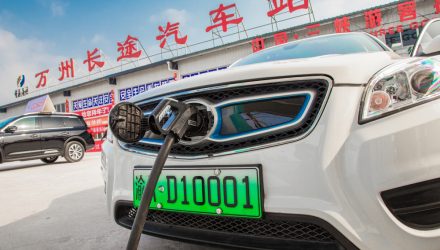China is ready for electric vehicles, putting funds like the KraneShares Electric Vehicles and Future Mobility Index ETF (KARS) at the center of it all.
“In recent decades, China’s rapid economic growth has enabled more and more consumers to buy their own cars,” an MIT News article said. “The result has been improved mobility and the largest automotive market in the world — but also serious urban air pollution, high greenhouse gas emissions, and growing dependence on oil imports.”
“To counteract those troubling trends, the Chinese government has imposed policies to encourage the adoption of plug-in electric vehicles (EVs),” the article said further. “Since buying an EV costs more than buying a conventional internal combustion engine (ICE) vehicle, in 2009 the government began to provide generous subsidies for EV purchases. But the price differential and the number of buyers were both large, so paying for the subsidies became extremely costly for the government.”
KARS, which is up 77% for the year, seeks to measure the performance of Solactive Electric Vehicles and Future Mobility Index. The Index is designed to track the performance of companies engaged in the production of electric vehicles and/or their components, or engaged in other initiatives that may change the future of mobility.
The Index includes issuers engaged in the electric vehicle production, autonomous driving, shared mobility, lithium and/or copper production, lithium-ion/lead acid batteries, hydrogen fuel cell manufacturing, and/or electric infrastructure businesses. According to the KraneShares website, “55% of new car sales and 33% of the global car fleet are projected to be electric by 2040.”
More Backing from the Chinese Government
China’s government is also backing EV initiatives. Policymakers in China are looking to slowly retract subsidies that ended last year and simply impose a mandate.
That mandate would require auto manufacturers to sell a certain percentage of vehicles that are battery-powered. If not, many could face financial penalties.
“To avoid financial penalties, every year manufacturers must earn a stipulated number of points, which are awarded for each EV produced based on a complex formula that takes into account range, energy efficiency, performance, and more,” the MIT News article said further. “The requirements get tougher over time, with a goal of having EVs make up 40 percent of all car sales by 2030.”
For more news, information, and strategy, visit the China Insights Channel.


